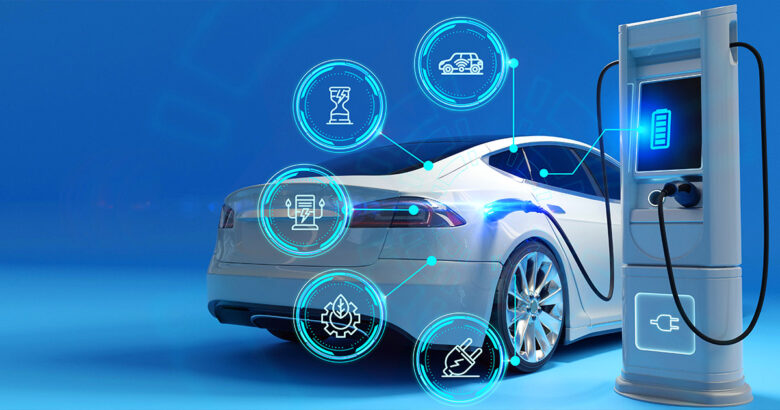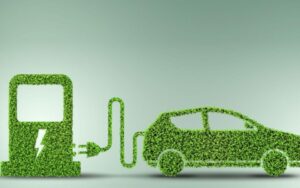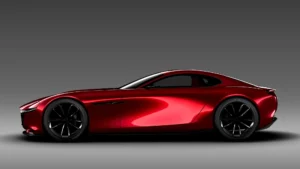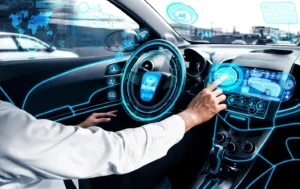The electric vehicle (EV) market has seen unprecedented growth in recent years as consumers become increasingly aware of the environmental and economic benefits. Once a novelty, electric vehicles are now becoming mainstream, with more and more automakers entering the market. Improved charging infrastructure, government incentives, and rising fuel prices have all contributed to the adoption of electric vehicles. In addition, car buyers are increasingly prioritizing sustainable transportation, making electric vehicles an attractive option for environmentally conscious consumers.
1. Advances in Battery Technology
Battery technology is at the heart of electric vehicles, and significant advances have been made in this area over the past decade. Lithium-ion batteries, the most common type used in electric vehicles, are becoming increasingly efficient and cheaper to produce. These advances are increasing vehicle range, reducing charging times, and lowering overall costs. Research is also underway into next-generation batteries, such as solid-state batteries, which promise higher energy density, longer lifespans, and faster charging times. These developments are expected to transform the electric vehicle industry, making electric vehicles more practical and appealing to a wider audience.
2. Expand Charging Infrastructure
One of the biggest concerns for potential EV buyers is the availability of charging stations. However, as demand for electric vehicles increases, expanding charging infrastructure has become a priority for governments and private companies. Public charging networks are expanding rapidly, with fast-charging stations popping up in cities, highways, and rural areas. In addition, advances in home charging systems have made it easier for EV owners to charge their cars overnight, adding convenience. The development of ultra-fast charging technology is another trend that is gaining traction, allowing electric vehicles to be charged in a fraction of the time it currently takes.
3. Expanding Electric Vehicle Models
The first EVs were dominated by compact and luxury models, but the EV market is now diversifying. Automakers are launching electric versions of a variety of vehicles, including SUVs, trucks, and even sports cars. This shift is critical because it serves a wider range of consumers with different needs and preferences. For example, the introduction of electric trucks has attracted businesses and individuals who need more towing capacity and cargo space, while electric SUVs have become increasingly popular among families who value space and comfort. The growing diversity of EV options helps to challenge the idea that EVs are only for urban commuters.
4. Integration of Autonomous Driving
Another exciting trend in the electric vehicle industry is the integration of autonomous driving technology. Many electric vehicle manufacturers are developing and testing self-driving features, with the ultimate goal of producing fully autonomous electric vehicles. Combining sensors, cameras, and artificial intelligence, autonomous driving systems are expected to revolutionize the transportation industry by improving safety, reducing traffic congestion, and making driving easier. While fully autonomous vehicles are still in development, many electric vehicles already offer semi-autonomous features such as adaptive cruise control, lane-keeping, and automated parking. As technology advances, we can expect to see more electric vehicles with improved autonomous driving capabilities.
5. Focus on Sustainability and Recycling
Sustainability is at the heart of the electric vehicle movement, with manufacturers increasingly concerned about the environmental impacts of electric vehicle production and disposal. One challenge facing the industry is the recycling of lithium-ion batteries, which contain valuable but hazardous materials. To address this issue, companies are investing in new recycling technologies to recover and reuse battery components. In addition, some automakers are exploring ways to reduce the environmental footprint of electric vehicle production by using sustainable materials and renewable energy in the manufacturing process. The push toward a circular economy in the electric vehicle industry is gaining momentum, and recycling will play a key role in the long-term sustainability of electric vehicles.
6. Electric Vehicle Performance Improvements
Since the introduction of the first models, electric vehicles have come a long way in terms of performance. Today’s electric vehicles offer excellent speed, handling, and power. Electric motors provide instant torque, allowing them to accelerate faster than cars with traditional combustion engines. Electric cars are also easier to drive and stabilize because of their lower center of gravity, caused by their batteries. Powerful electric sports cars from Tesla and other automakers are setting new standards in speed and maneuverability, putting them on par with gasoline-powered cars. As technology continues to advance, electric vehicles should perform better while still being efficient and environmentally friendly.
7. The Cost of Electric Vehicles
One of the biggest reasons why electric cars are not widely available yet is that they are more expensive upfront than regular gasoline cars. However, this is changing as battery costs come down and battery production increases. With the introduction of more affordable electric car models and government assistance, it is becoming easier for most people to buy an electric car. To reduce the cost of ownership, automakers are also looking for new ways to make money, such as leasing batteries and offering subscription services. As electric vehicles become more affordable, they are likely to continue to capture a larger share of the auto market.
8. The Future of Electric Vehicles
Electric vehicles have a bright future thanks to new technologies, environmental concerns, and government policies that encourage innovation. As battery technology continues to improve, charging stations expand, and electric vehicle prices fall, more and more people are likely to switch from gasoline-powered cars to electric vehicles. The growing number of electric vehicle models and the addition of autonomous vehicle technology will also make electric vehicles more attractive. Electric vehicles are poised to undergo a major transformation, and current market trends will make future transportation cleaner and more environmentally friendly.
FAQs
1. What are the current trends in the electric vehicle (EV) market?
Key trends include improvements in battery technology, more charging stations, a wider range of electric vehicle models, the use of autonomous vehicles, greener efforts, government incentives, and better performance.
2. How can battery technology for electric vehicles improve?
Battery technology is improving, especially lithium-ion batteries, which means they have longer ranges, charge faster, and cost less. Solid-state batteries and other new technologies promise to make things more efficient and sustainable.
3. Is it getting cheaper to buy an electric car?
Yes, electric car prices are dropping as battery production increases and technology advances. New, cheaper models and government tax breaks are making electric vehicles more accessible to more people.
4. How is the charging infrastructure for electric vehicles changing?
Charging infrastructure is developing rapidly, with more and more public fast charging stations popping up. Home charging options are also improving, making it easier for EV owners to charge overnight.
5. What types of electric vehicles are currently available?
Today’s market is more diverse than just compact cars. There are now electric SUVs, trucks, and sports cars available, which can be used for everything from heavy-duty work to hauling your family.




